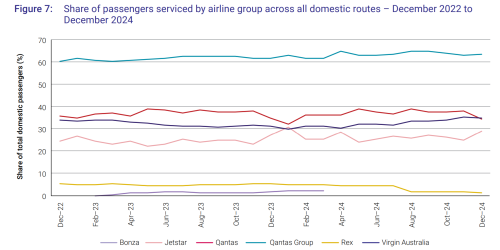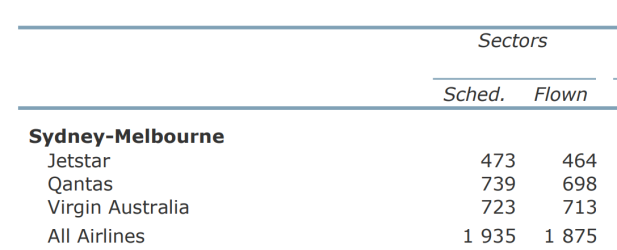Great VA news!!!
Virgin Australia has overtaken Qantas the largest domestic airline in Australia with a market share of 35%. VA has a 0.4% larger domestic market share than Qantas, and has seen a 15% increase in market share since December 2023. VA also recorded the highest load factors than any Australian airline with 93.4% of seats being full. The routes that are most popular are SYD-MEL, BNE-SYD, BNE-MEL, OOL-SYD and MEL-OOL. The airline also has a cancellation rate of just 0.6%. Wonderful VA news.
Virgin Australia has overtaken Qantas the largest domestic airline in Australia with a market share of 35%. VA has a 0.4% larger domestic market share than Qantas, and has seen a 15% increase in market share since December 2023. VA also recorded the highest load factors than any Australian airline with 93.4% of seats being full. The routes that are most popular are SYD-MEL, BNE-SYD, BNE-MEL, OOL-SYD and MEL-OOL. The airline also has a cancellation rate of just 0.6%. Wonderful VA news.


















